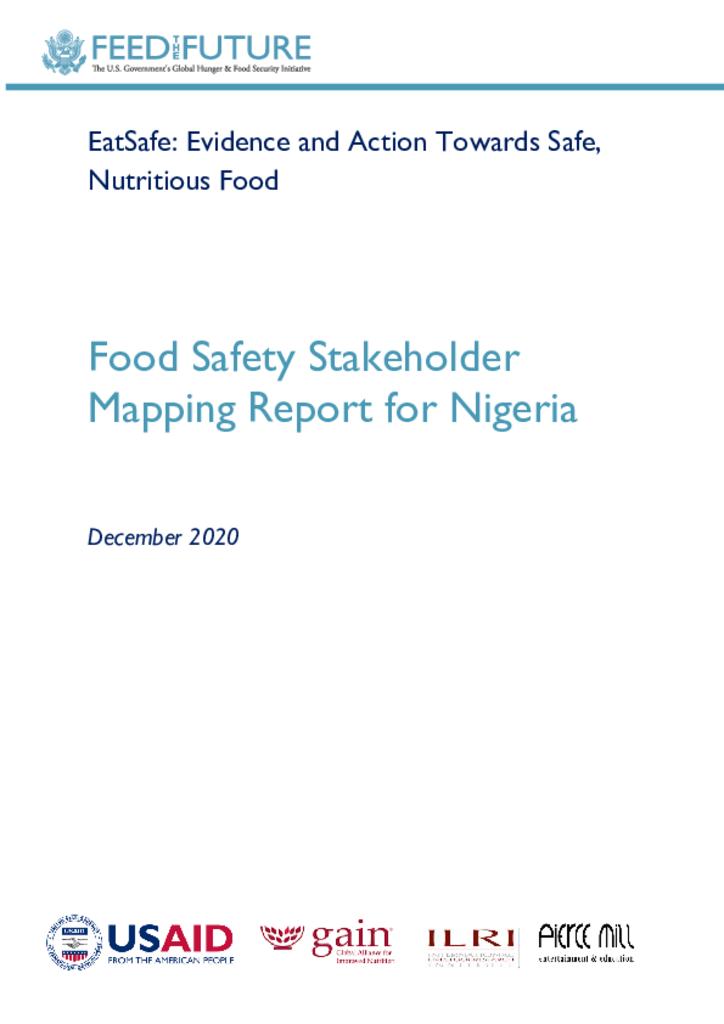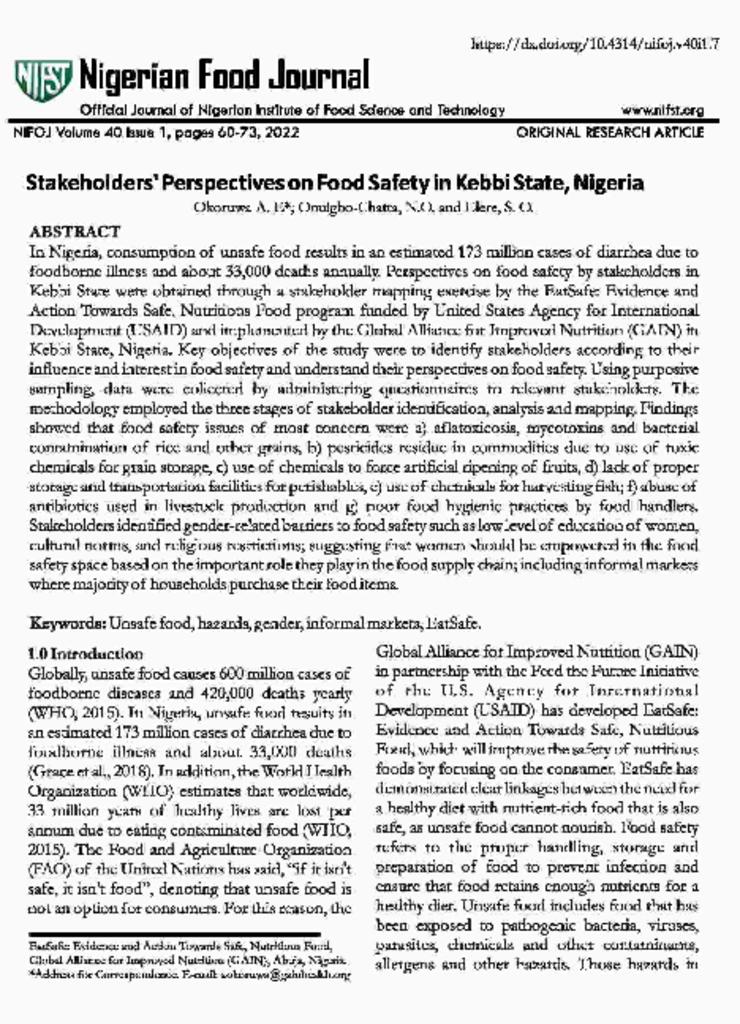During the formative research phase of the EatSafe program in Nigeria, several research and field activities identified and gauged stakeholders' interests in food safety at local and national levels. The resulting reports included three covering stakeholder engagement at the national level (the launch of EatSafe in Nigeria, the Stakeholder Mapping report, and the Stakeholder Consultation report) and two in Kebbi State (the review of Citizen Engagement and the Municipal Roundtable report), where EatSafe operates. EatSafe synthesized the findings from these activities in an article published in the Nigerian Food Journal.
In the reports below, EatSafe defined a stakeholder as any person, organization or social group that has a stake or vital interest in the business of food and its safety. Stakeholders can be categorized based on the functional involvements or their motive of interest such as being customers, employees, investors, suppliers and vendors, communities, and the government. Stakeholders can be "food safety champions," having high influence to improve food safety in Nigeria.
| Citizen Engagement in Safe Food Markets in Kebbi State, Nigeria | Municipal Roundtable: Design of Safe Markets for Nutritious Food |
| EatSafe in Nigeria Launch Report | Review of Indicators |

